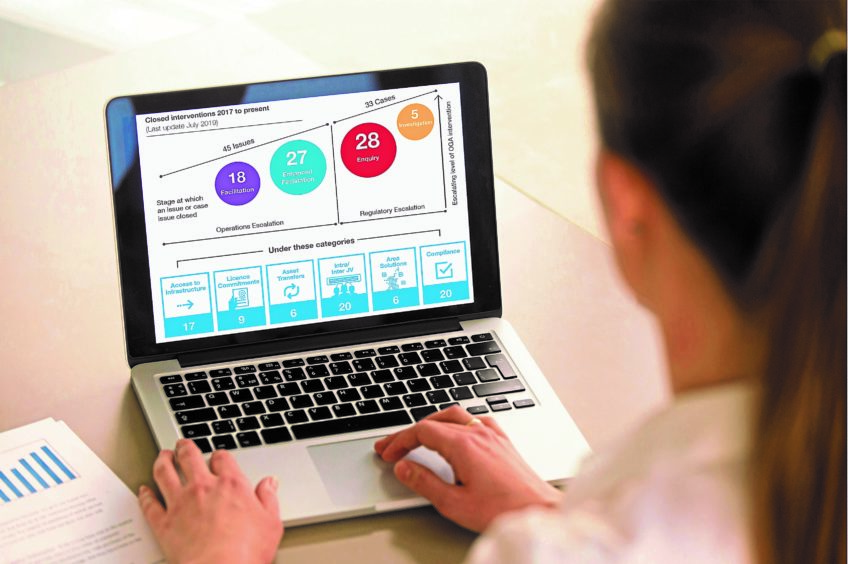
The OGA’s work to date to maximise economic recovery (MER UK) has been through promoting, influencing – and where necessary regulating – using our Energy Act 2016 powers.
We’ve sought to drive change in the UKCS mainly through stewardship, promoting and influencing. What may not have been so obvious is the role played by the Energy Act 2016 powers and the pre-existing infrastructure access powers.
This involves the OGA’s Disputes and Sanctions team working alongside Area and Exploration teams to identify issues that might impact MER UK and then actively manage those issues.
We use a process called “measured escalation” and since the beginning of 2017, this method has helped to resolve at least 78 separate issues.
These cover issues arising throughout the development lifecycle and across the UKCS and only a very small minority have required us to use our powers to intervene.
From the “Enhanced Facilitation” step onwards, we make clear our intent to see that the issue is resolved, indicating willingness to use the powers, should they be needed.
We are grateful to those companies who engage constructively with us. Despite progress we still see some issues taking too long to resolve or ending up in deadlock between disputing parties.
We are taking on more cases and we are being more transparent about the work that we are doing. When issues become difficult to solve, we act robustly in using our powers and challenging any entrenched behaviours.
We will never intervene just for the sake of it.
Wherever possible we will continue to use our measured escalation process, clearly setting out our expectations and intentions, and giving licensees a reasonable chance to put things right. When we do intervene, we will be proportionate in selecting which powers we use.
We have introduced some changes already:
1)Publication of new enquiry
guidance: This can be found on the “disputes and sanctions” page of the OGA website. It sets out the process the OGA will normally adopt when carrying out an enquiry.
This guidance also includes the process for handling disputes where the OGA decides to intervene on its own initiative under its Third Party Access and Non-Binding Dispute Resolution powers.
2) We continue to focus our attention on two long standing OGA strategic priorities: resource progression, and right asset right hands. Where behaviours are seen to conflict with one of these priorities, companies can expect the OGA to proactively intervene and for issues to be escalated more quickly than previously.
3)Online case register: This document will give summary details of disputes and sanctions team work, and will be supplemented by case closure summaries where it will be beneficial for industry to understand the details of an issue and the way it has been resolved.
4) Refreshed Stewardship Expectations: We have introduced a new commercial stewardship expectation which sets out how operators and licensees should be expected to achieve key standard types of practices.
5) The OGA’s first thematic review: This will examine industry compliance with regulatory obligations. A thematic review examines an area where there is room for improvement across the UKCS, not just in one field.
We continue to see some pockets of non-compliance with basic regulatory obligations.
Our thematic review will carry out an initial grassroots awareness survey together with Oil & Gas UK, to establish best practice and areas for improvement. The survey will be launched in early October and we intend to issue a final report by the end of the financial year.
We aim to undertake more thematic reviews and invite industry to suggest areas where this could help deliver MER UK.
6) Alternative Dispute Resolution: There is evidence that an excessive amount of time is taken up in disputes among licensees, usually in misaligned joint ventures. It is possible that various forms of Alternative Dispute Resolution (ADR), including by the OGA, could be used instead of litigation, in order to resolve disputes more quickly and at less cost to licensees.
The OGA is exploring the potential for this process to resolve disputes informally, and how ADR could work alongside our own non-binding powers.
Most stakeholders have already made substantial changes to align their businesses to the requirements of the MER UK Strategy, and our objective is to embed those improvements across the industry.
Recommended for you
